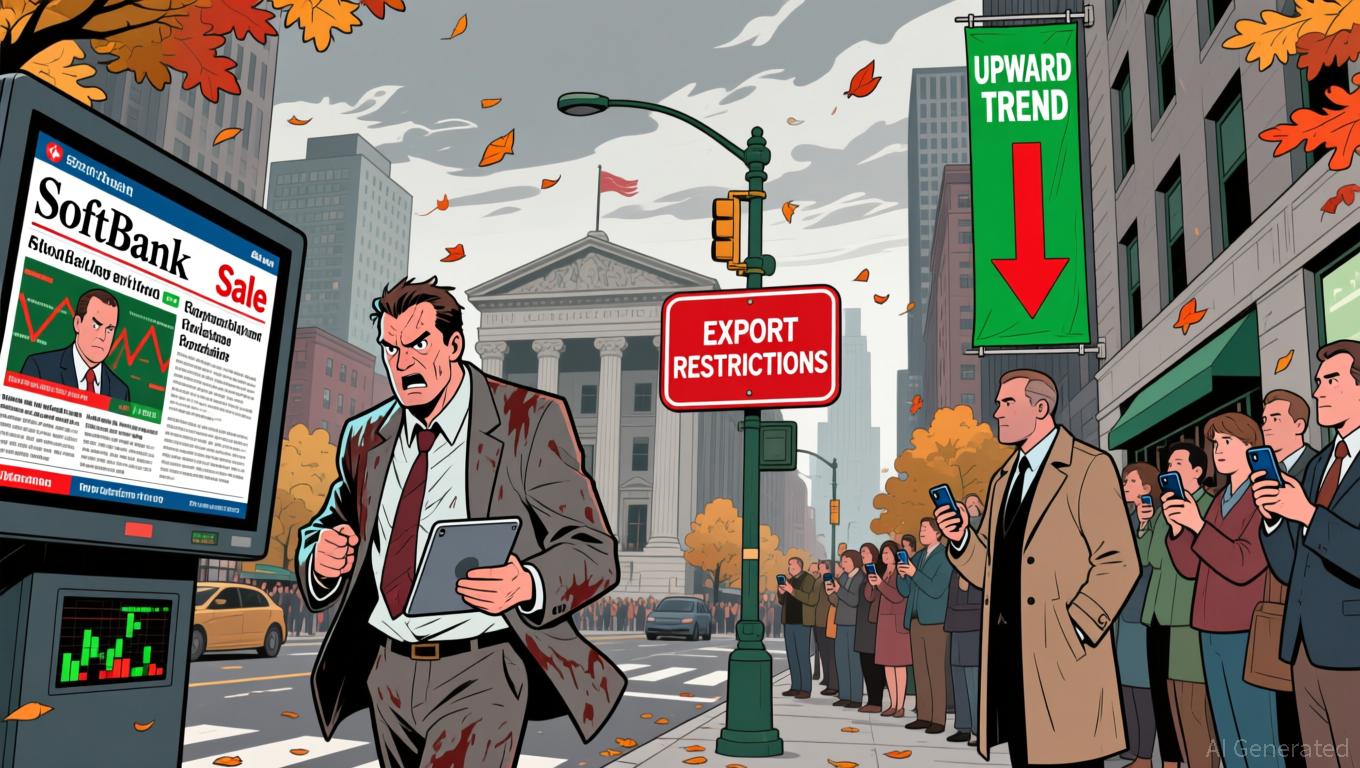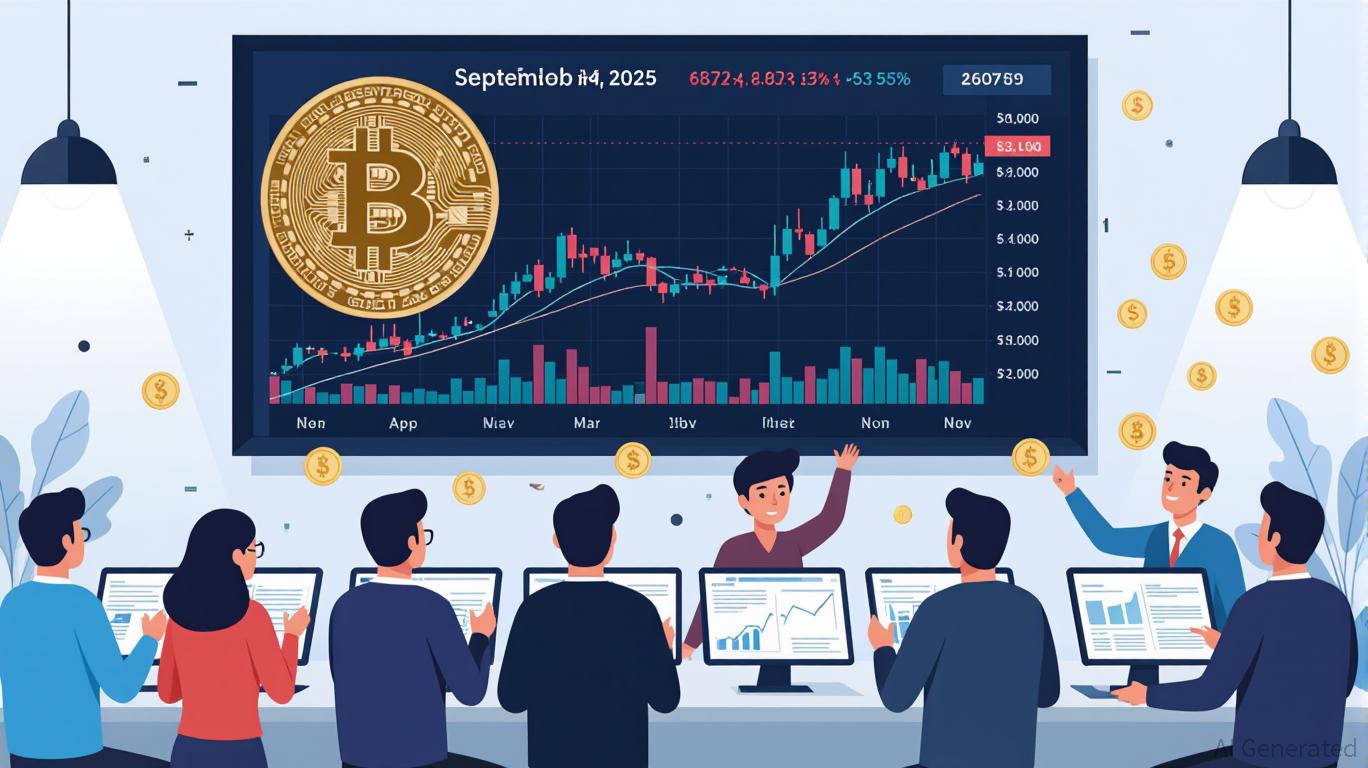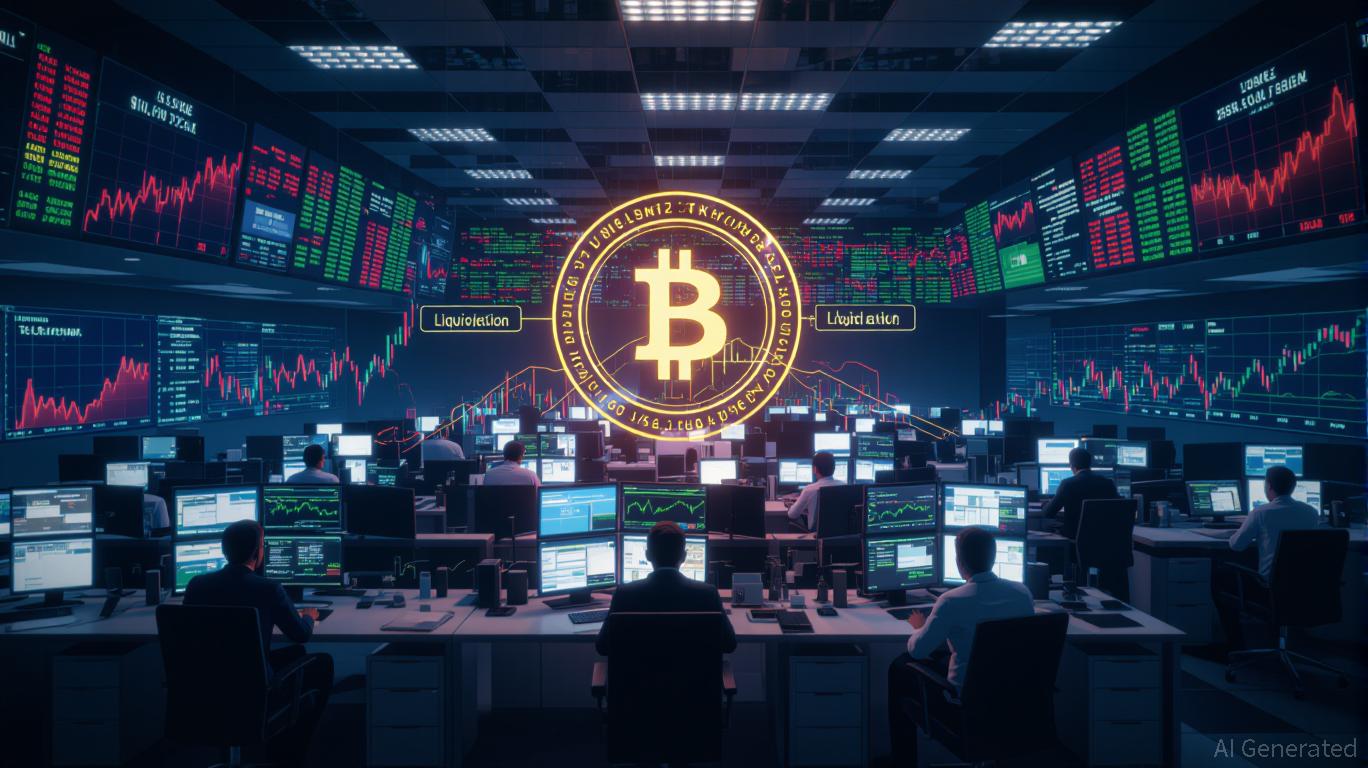SoftBank's $5.8B Withdrawal Raises Questions About AI Growth, Causing Nvidia Stock to Tumble
- SoftBank's $5.8B sale of its Nvidia stake triggered a 3.1% stock drop on Nov 11, 2025, signaling investor doubts about AI sector momentum. - The sell-off coincided with U.S. export restrictions to China, HBM supply delays, and AMD's $1T data-center market projections challenging Nvidia's dominance. - Analysts raised price targets to $230-$265 based on strong GB200 demand, but broader tech market declines highlighted risks in stretched AI valuations. - Upcoming Nov 19 earnings will test Nvidia's ability t
On November 11, 2025, Nvidia's stock experienced a significant drop after SoftBank Group sold its entire $5.8 billion holding in the AI chip giant, causing turbulence across the tech industry. The Japanese conglomerate's full divestment, revealed in late October, sparked speculation about whether its once-bold commitment to artificial intelligence was waning.

This downturn continued a trend of volatility for
Even with these short-term headwinds, analysts remain guardedly positive. Rick Schafer of Oppenheimer increased his Nvidia price target to $265 from $225, while Christopher Rolland at Susquehanna maintained a $230 target, citing robust demand for Nvidia's GB200 AI products
Investors are looking to Nvidia's November 19 earnings release for further insight. The company will need to prove ongoing demand for its Blackwell chips and address ongoing supply issues,
---
Disclaimer: The content of this article solely reflects the author's opinion and does not represent the platform in any capacity. This article is not intended to serve as a reference for making investment decisions.
You may also like
Trump’s Wall Street Fundraiser Sparks Renewed Debate Over Deregulation and Regulatory Oversight Following Trade Finance Crisis
- Trump dined with Wall Street leaders amid First Brands' $3B trade finance collapse, exposing non-bank lending risks and triggering calls for stricter oversight. - Jefferies faces scrutiny over $3B in tied debt as its stock fell 19%, while JPMorgan's Dimon warned of systemic gaps in non-bank lending oversight. - Trump's 50-year mortgage proposal sparked debate, with critics fearing "debt for life," while a 42-day government shutdown worsened market uncertainty. - The administration's deregulatory agenda c
Digital Identity, No Data Required: ZK Protocol Secures $9M to Champion a Privacy-Centric Tomorrow
- Self Labs raised $9M in seed funding led by Greenfield Capital and SoftBank, with participation from Web3 leaders like Sreeram Kannan and Sandeep Nailwal. - The ZK-based platform enables privacy-preserving identity verification using zero-knowledge proofs and supports 129 countries' biometric passports and India's Aadhaar system. - A points-based rewards program incentivizes on-chain verification, while integrations with Google, Aave , and Velodrome expand use cases like token distribution and age checks

Bitcoin’s Sharp Decline: Is This a Healthy Correction or an Ominous Signal?
- Bitcoin fell 10.5% in November 2025 amid a $19B derivatives crash, driven by Fed policy uncertainty and U.S.-China trade tensions. - Regulatory shifts and leveraged liquidations (1.6M traders impacted) exposed vulnerabilities in crypto's derivatives-heavy market structure. - Institutional demand persisted (e.g., JPMorgan's 64% ETF stake increase), suggesting long-term adoption despite short-term volatility. - Derivatives recovery may lag until 2026, hinging on Fed rate clarity and inflation trends, with

Bitcoin Leverage Liquidation Spike: Systemic Threats in Crypto Derivatives During Q4 2025 Market Turbulence
- Q4 2025 crypto derivatives saw $20B in liquidations as Bitcoin fell below $100,000, exposing systemic risks from extreme leverage (up to 1,001:1) and interconnected markets. - Platforms like Hyperliquid and Binance faced $500M+ losses in 24 hours due to cascading margin calls, with 78% of perpetual futures volume amplifying volatility through feedback loops. - Regulators scramble to address risks as unregulated leverage, macroeconomic pressures, and geopolitical tensions (e.g., U.S.-China trade wars) inc
